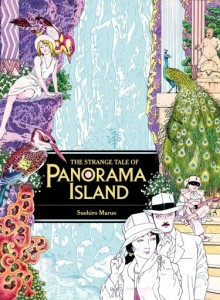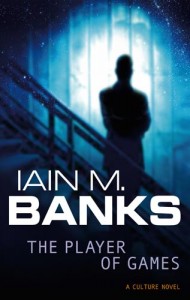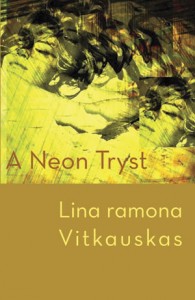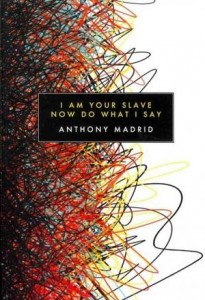OLD THEME BY ELLEN FRANCES | JASON LESCALLEET

The new short film from Ellen Frances, “Old Theme,” follows her 2011 short “Very Beautiful Woman” in a series of intense self-portraits. Her control and exactitude become more apparent with each release, and while this series departs from her music video and other creative work, the same instinct for evocative composition pervades these first two entries. Collaborating this time with Jason Lescalleet and Jenni Hensler, Frances expands on the motifs introduced in the earlier short.
The title comes from a track on Lescalleet’s 2012 album Songs About Nothing, and together with another track (‘The Loop’) from same, the tape musician’s musique concrète comprises the majority of the soundtrack. Frances opens with audio from her own ECG looped over spinning gears—blood circulating, heart in constant rhythm, my pulse as yours doth temperately keep time—then crashes it into ‘Old Theme’ and appears herself as a dancer wound in Hensler’s sheer red and blue silk.
Hensler has designed costumes and outfits ranging from Zola Jesus’ white-LED spiral collar to dresses for Chelsea Wolfe and styling for Crispin Glover. The silk she uses for Frances’ costume frames the face and billows in directions from which the half-hidden body withdraws. Constriction / flow and opaque draping are coordinated and shot by Frances, but the costumes themselves seem like burning auras flung outward to track her body. READ MORE >
Getting Paid to Play in Paradise: Suehiro Maruo’s STRANGE TALE OF PANORAMA ISLAND
 THE STRANGE TALE OF PANORAMA ISLAND
THE STRANGE TALE OF PANORAMA ISLAND
by Suehiro Maruo
Last Gasp, 2013
274 Pages / $24.95 Buy from Last Gasp
I first encountered Suehiro Maruo via the hyper-violent/erotic, aka “ero-guro” collection that Creation Books put out in 2001, ULTRA-GASH INFERNO. It’s a slim volume of short manga narratives, all focused on some sort of extremity. Despite the subject matter, Maruo carried a sense of poetry through the excess, and the resulting combination brought about similar feelings to that which I had first experienced reading the fiction that set me down my life’s trajectory, fiction such as Bataille’s Story of the Eye or Bernard Noel’s Castle of Communion. I became a dedicated fan.
Next encounter–the only other book of Maruo’s available in translation at the time–was Mr. Arashi’s Amazing Freak Show. A more developed narrative (developed in the sense that it is a book-length narrative, instead of only giving itself a few pages to breathe). It rooted itself in the earlier parts of the 20th century, which allows a certain suspension of disbelief necessary to the development of the plotting (which eventually goes off the deep end regardless).
Now, a number of years later–and after a significant waiting period between the announcement of publication and the actual publication of the book (which, I should note, should not be considered a fault)–Maruo’s most developed single-volume narrative yet has become available in English– The Strange Tale of Panorama island.
READ MORE >
July 31st, 2013 / 12:28 pm
Player of Games
 Player of Games
Player of Games
by Iain M. Banks
Orbit (Reprint Edition), 2008
416 pages / $15.99 Buy from Amazon
Iain M. Banks passed away on June 9th of this year from terminal cancer to the gallbladder. He had a prolific career with 27 books and came to fame with his first book, The Wasp Factory. I’ve been reading his Culture series after multiple friends urged me to read his work, declaring Banks was the best science fiction writer they’d read. The Player of Games is the second book in the Culture series and probably my favorite in the series so far, mainly because it revolves around gaming. I did a book review of the first one, Consider Phlebas, for HTMLGiant here, and while this review complements that first part, it also serves as a tribute to Banks with quotes from some of his interviews before his recent passing.
At the center of this massive, sprawling universe is the Culture. The Culture is an egalitarian form of government based in a post-scarcity world which means that everything is free because of an abundance of resources. This allows people to pursue what they want to without worry of making enough money to survive. The way the Culture maintains everything is by putting computer AIs, or Minds, in charge of the government. As anyone who has seen Star Trek can testify, even in a post-scarcity world, people can be corrupt and pursue agendas that are counter-intuitive, motivated by greed and vanity. Since the Culture is made up of robots who find such notions puerile, they do a good job maintaining the status quo. There are also no such things as laws per se. Everyone has everything they need so many of the motives for crime have vanished.
Player of Games was first published in 1988, though it was reworked from an earlier version Banks started in 1979. It exemplifies the best of the Culture books with beautiful writing, exotic locations, and thrilling plots full of intrigue. Ironically, things start slowly in an idyllic world where people can play games all day and tedium is the biggest malaise they suffer from. Gurgeh is a master of games who is bored with life because he is too good at them. While he might lose a game or two (there are even some games he is not good at), Gurgeh has a sense for gameplay that helps him to master almost anything. “I… exult when I win. It’s better than love, it’s better than sex or any glanding; it’s the only instant when I feel… real.” Only, most of the games no longer cause that sensation as no one can offer him a true challenge.
Partly motivated by his boredom and further pushed into it through a blackmail scheme perpetrated by a Culture drone, he is sent by Contact (the special forces division of the Culture) to infiltrate the Empire of Azad. His mission, outwardly, seems simple. Learn the game of Azad and play it to the best of his abilities. What exactly is the game? “The game of Azad permeated every level of society, like a single steady theme nearly buried in a cacophony of noise, and Gurgeh started to see what the drone Worthil had meant when it said Contact suspected it was the game that held the Empire together.” Official positions are awarded by rankings in the game and the winner becomes Emperor. “The idea, you see, is that Azad is so complex, so subtle, so flexible and so demanding that it is as precise and comprehensive a model of life as it is possible to construct. Whoever succeeds at the game succeeds in life (italics are mine); the same qualities are required in each to ensure dominance.”
Gurgeh starts the game badly, even worse than people had expected, caught up in minutia about the game he can’t grasp. That’s when he changes tactics and focuses on the psychology of his foes and realizes that the rest were “too concerned with winning the game quickly… the moves could become a language, and Gurgeh thought he could speak that language now, well enough to lie in it.” Banks takes the readers away from the specifics of the game and concentrates on how the different personalities play in different ways to reflect who they are. The broader strokes makes for a far more interesting read as it becomes a strategic war of wills between individuals.
July 31st, 2013 / 11:00 am
25 Points: Testicular Cancer
1. Germ cells are immortal.
2. Germ cells contain half the number of chromosomes needed to make an organism, and so are specially made for sexual reproduction, but they can divide and differentiate into any kind of biological tissue. They can even create complex organs made of multiple tissues.
3. A teratoma is a germ-cell tumor—a bunch of inappropriate tissue in some inconvenient spot on the body, replicating wantonly. The best teratomas (the ones with gory, romantic stuff like hair or teeth or—gasp—eyes!) are collectible, formaldehydable medical oddities.
4. Though they form prenatally, teratomas commonly become large enough to notice only much later. Some are detectable by prenatal ultrasound. Some develop so rapidly in the womb that they endanger the fetus.
5. Teratomas are benign in themselves but, for reasons not yet understood, occasionally undergo cancerous transformations.
6. Words that rhyme w/ teratoma: adenoma, carcinoma, granuloma, hematoma, melanoma, myeloma, Oklahoma, papilloma, tokonoma.
7. My teratoma swole my entire right ball w/ almost nothing but cartilage. When I first noticed it, it was the size of a peach pit. By the time I had a doctor look at it, it had grown to the size of a jumbo egg and it was hard as a rock. I didn’t know what a teratoma was when I dropped my pants so the urgent care doctor could get a good look.
“Jesus Christ!” she said. “It’s hard as a rock!”
The urgent care doctor wanted to know how long had it been like this. It had been like this a year and half. Well then, why was it suddenly such an emergency I had to come in here on a Saturday?
8. It could be a few things, she said. It could be cancer, which was unlikely; or it could be like four other things which I don’t remember—and which don’t matter now anyway ‘cuz it was cancer. (She never said the word teratoma, which is in hindsight like duh the only thing it could have been, right?) Whatever it was, I had to get an ultrasound immediately, and then go see a urologist.
9. If you pay in full at the time of your visit, it costs $100 to have your balls touched and screamed at by a real doctor.
10. The ultrasound technologist held a tube of ultrasound gel upside down over my human junk.
“When did you first notice a lump?”
“Like, a year ago.”
“And it’s some kind of emergency today?”
“Um, yeah. Uh, my wife…”
Schplorpk! READ MORE >
July 30th, 2013 / 1:24 pm
The Merger Of Ghosts

Penguin and Random House aside, it’s not unusual to witness the merger of two large companies – Publicis and Omicom this week, if regulators approve. These things happen, between competitors, in market spaces where the norm is already collusion, diffusion and consultancy.
Media companies and advertising agencies don’t provide value in simple or easily counted ways, though we are told that the services they bill are common, reasonable, or even essential to the operations of their clients, who actually make and distribute products. Mom and pop and factory floor.
Actually, in some cases client companies are as vaporous and high-minded as the agencies that provide ‘creative services’ or ‘brand management.’
Sleek and Hypnotic: Lina ramona Vitkauskas’s A Neon Tryst
 A Neon Tryst
A Neon Tryst
By Lina ramona Vitkauskas
Shearsman Books, 2013
84 pages / $15 Buy from Amazon or SPD
Lina ramona Vitkauskas’s ekphrastic book of poetry, A Neon Tryst, has just been released by UK publisher, Shearsman Books. It begins:
Contents
Black Patent Translations
to L’Eclisse 7
Wilson, 722
to Seconds 29
Into the Black Flocks
to Wild Strawberries 59
These parts each begin with a short summary of their respective film:
L’Eclisse (1962) stars the sleek-silver-hypnotic Monica Vitti as a lost woman re-discovering herself after leaving her husband…
Seconds (1966) stars Rock Hudson as an aging, bored, East-coast man who is encouraged to commit pseudocide by an ominous group of wealthy men called ‘The Company’…
Bergman’s classic film, Wild Strawberries (1957), tells the tale of an aged, retired professor travelling cross-country to his alma mater to receive a lifetime achievement award.
I liked being reminded of Antonioni’s L’Eclisse, in particular, geometric Monica Vitti dripping across the screen, her crystalline angles and lines, filmed in black-and-white.
Printed on the back cover of A Neon Tryst is this:
all the main characters share an internal conflict—losing identity with the passage of time.
The book’s cover art is a still from the film, of Vitti’s sleeping face, doubled and cropped. Vitkauskas manipulated the image herself. She has made it wilder: she has given it color:
 This is a Neon Tryst. The monochrome Monica Vitti has been given layers. Her sleeping eyes lit from below, impressed from above, the Vitti on the cover sends a different signal than the Vitti of the film. We are reminded whose tryst this is—Vitkauskas’s: electric, in neon.
This is a Neon Tryst. The monochrome Monica Vitti has been given layers. Her sleeping eyes lit from below, impressed from above, the Vitti on the cover sends a different signal than the Vitti of the film. We are reminded whose tryst this is—Vitkauskas’s: electric, in neon.
L’Eclisse, Seconds, and The Wild Strawberries were all made during the late 50s and early- to mid-60s, in black-and-white.
July 29th, 2013 / 11:00 am
I Am Your Slave Now Do What I Say by Anthony Madrid
 I Am Your Slave Now Do What I Say
I Am Your Slave Now Do What I Say
by Anthony Madrid
Canarium Books, 2012
136 pages / $14 Buy from Amazon or SPD
I Am Your Slave Now Do What I Say is a masterful book. Subtitled or retitled 580 Strophes: Libri Sex, the book states its structure: hundreds of couplets in six books—which is exactly not to state its unity. Unity and identity are in fact the questions at stake both within and across poems; and as the title promises, turnabout is fair play. The language itself is both master and slave, and the book as a whole both begs our attention and commandeers our consciousness.
Perhaps the first thing one notices is that the poems don’t make sense. Generally composed of six to ten couplets, they begin in the middle of things, stay in the middle of things, and exit with a parting shot, generally a mocking commentary from an invisible bystander. What is one to make of a poem that leaps from the cost of subway trains to the release of “that eerie torchlit blackbird” to an “eleven leggéd SUN” which is told to cease “threading needles with camels?” And this just halfway through the first poem! One makes, through patient attention, a play-space and a space in play. It is not just that anything can happen in these strophes, but that lyric enclosure no longer applies. And endings are not meanings; they may “sum up” in off-sides banter, but they do not provide coherence.
List-poems are a good analogue, such as Whitman’s, and certain songs in the Bible; so are analocuthons like Christopher Smart’s paeon “To My Cat Geoffry.” The book’s speaker calls its pieces ghazals and is clearly admiring of and invested in Arabic poetry, but the ghazal’s rhymes and repeated words have been excised. The couplets are all disjunction, all the time. The poems leap from long-limbed declarative sentences to asides, statements of fact and opinion, invitations, exclamations, questions, and apostrophes: So that the effect of all these leaps is not only constantly to create and destroy universes, but to give the shimmer, across the Bedouin desert, of metaphor (the identity of disparate elements) by way of constant juxtapositions.
Sometimes the poems explicitly weave metaphoric or harmonious unities that depend upon the subterranean connections of ambiguities (leaves, poems, books), even while disavowing them: “See how the stubborne damzell doth deprave my simple meaning”(8)! And sometimes a relatively clear pseudo-biographical narrative teases itself out; more often, one strophe picks up the subject of the previous, and proceeds as it were by error. The non-Western music of the single note, multiplied to a kind of infinity, creates its own space, and the ear that can hear. The poems give and do not give themselves up, mounting a “voluptuous resistance”(44) to our mastery and understanding, all the while dispensing accessible “Golden Advice”(3).
July 29th, 2013 / 11:00 am
“Is your sense of ‘cat-ness’ or your experience of your own body somehow enlarged by your momentary departure?” — Eric Baus on granular vocabularies for the Naropa Summer Writing Program
Happy Birthday John Ashbb [to release it from its condition of hardness you will have to take apart the notion of you]
… To be your breath as it is taken in and shoved out. Then, quietly, it would be as objects placed along the top of a wall: remembering just how the light stood on the water that time. Inside each other, moving upward
like penance.
like the face on a deflated balloon, shifted into wrinkles, permanent and
matter-of-fact.
Because life is short
We must remember to keep asking it the same question
Until the repeated question and the same silence become answer
In words broken open and pressed to the mouth
And the last silence reveal the lining,
the people who timidly inhabit it, the fuzzy first thought that gets started in you and then there’s no stopping it.
But it is your landscape, the proof that you are there.
Dear Rauan,…(4)
*****
[ helping people sometimes can be painful, yet liberating, but, as usual, I am here to help, in all my subtlety, & potency ]
*****
and this time we have Ariel from Denver:
dear rauan,
is it a good idea to castrate Patriarchy’s henchmen like Blake Butler, Rauan Klassnik, and Johannes Göransson? Some idiots say they’re exploring the darker side of human nature through an exaggerated male “lens” but I know in my soul that these guys are just straight-up misogynists.
I must confess, though, that one time I dreamed these three “doods” were forcing themselves on me (boot in the face, the Svelte Swede, and all that) and I woke up orgasming as hard as I’ve ever.
but tell me, dear rauan, should we castrate these vermins?
thank you in advance,
Ariel T.
*****
*****



